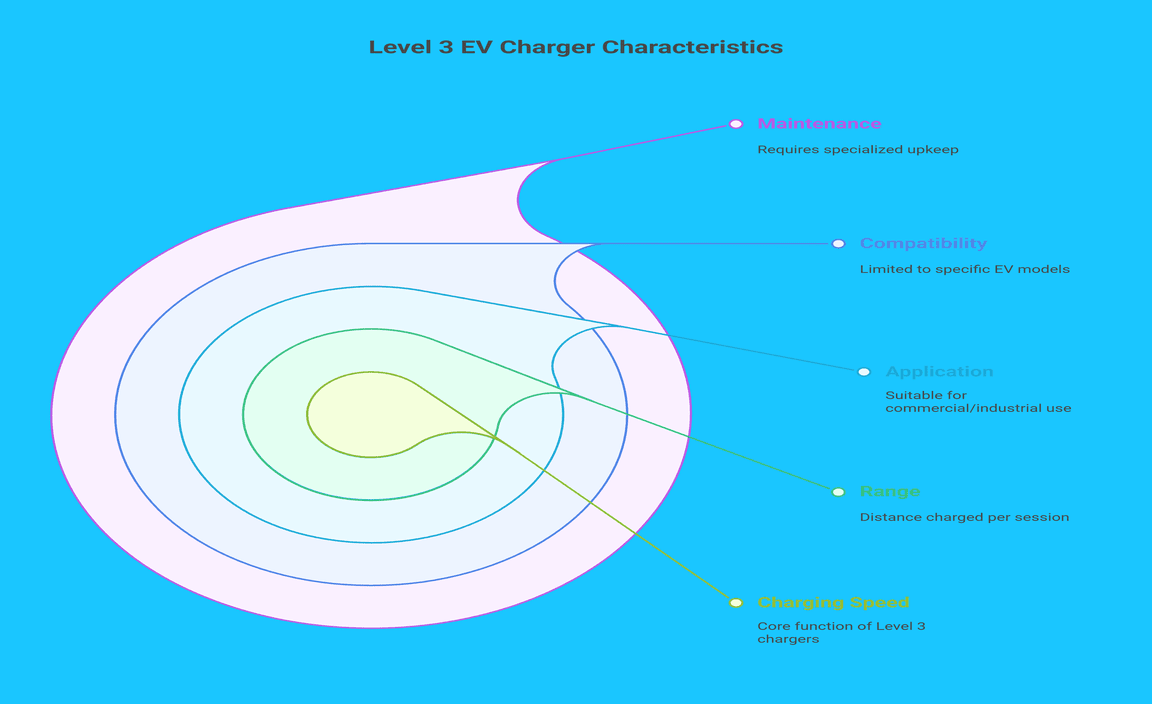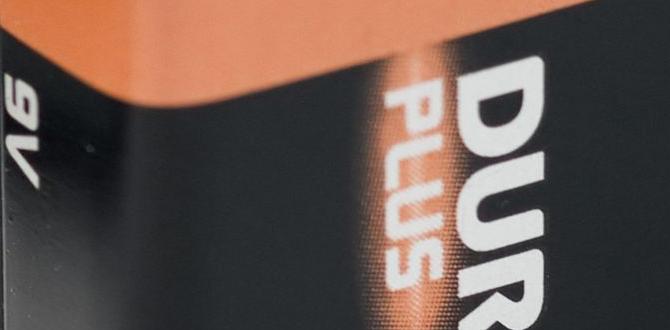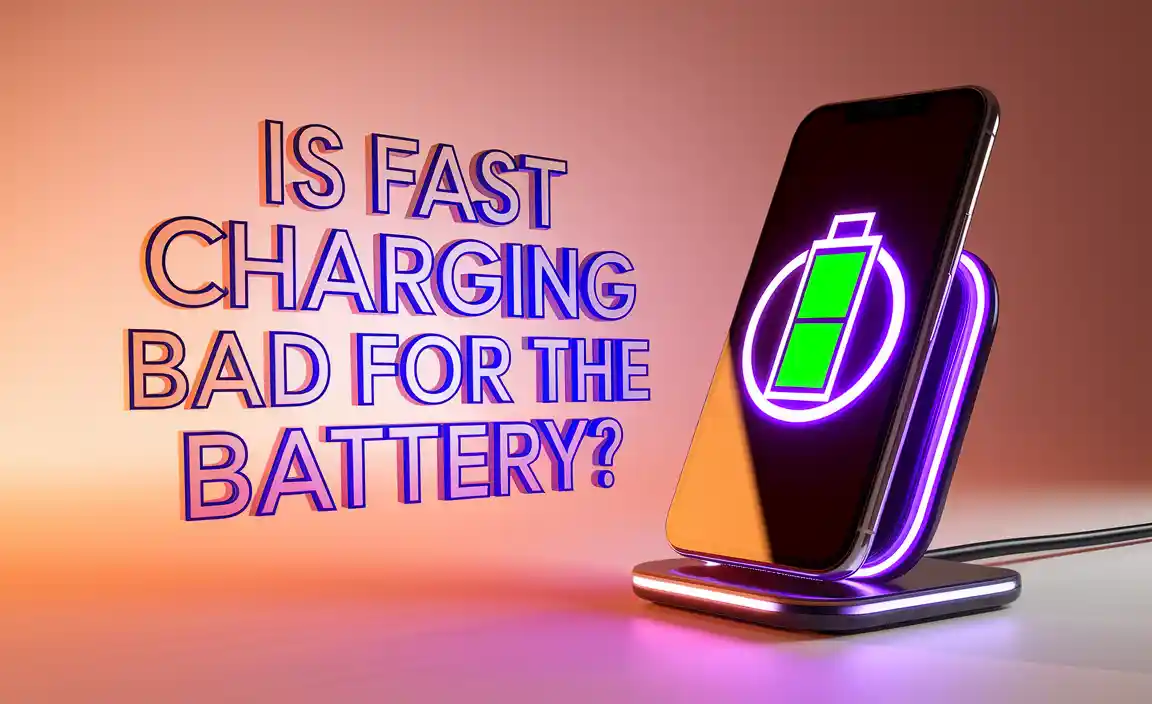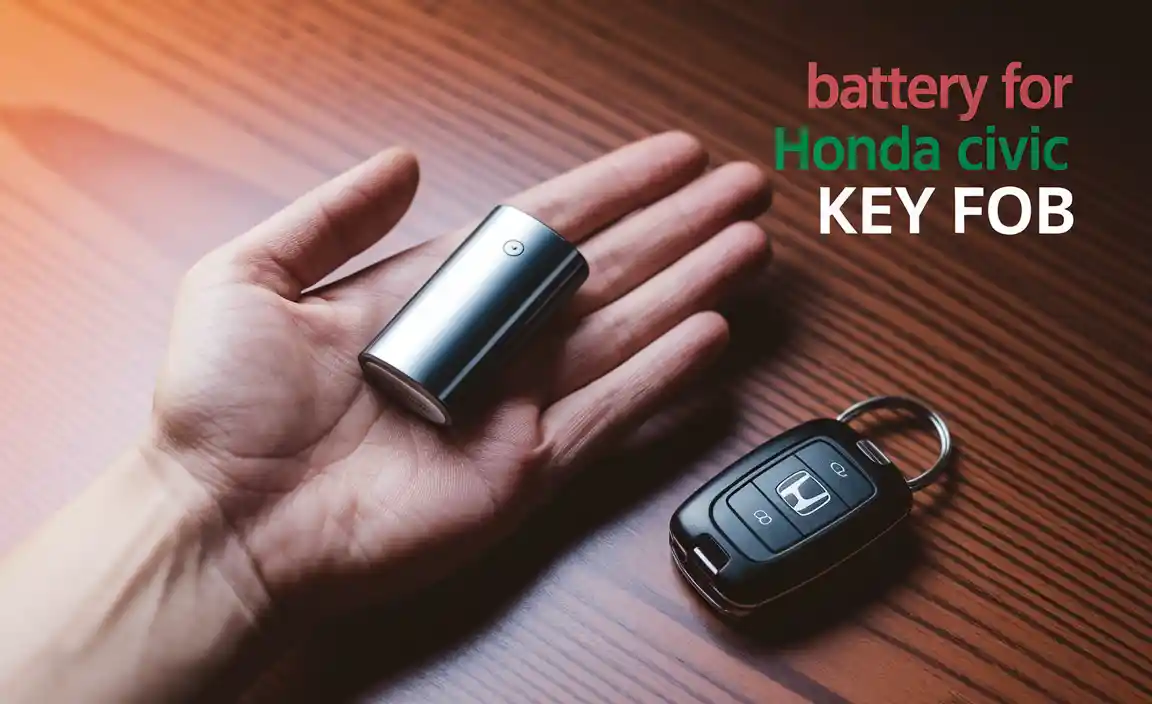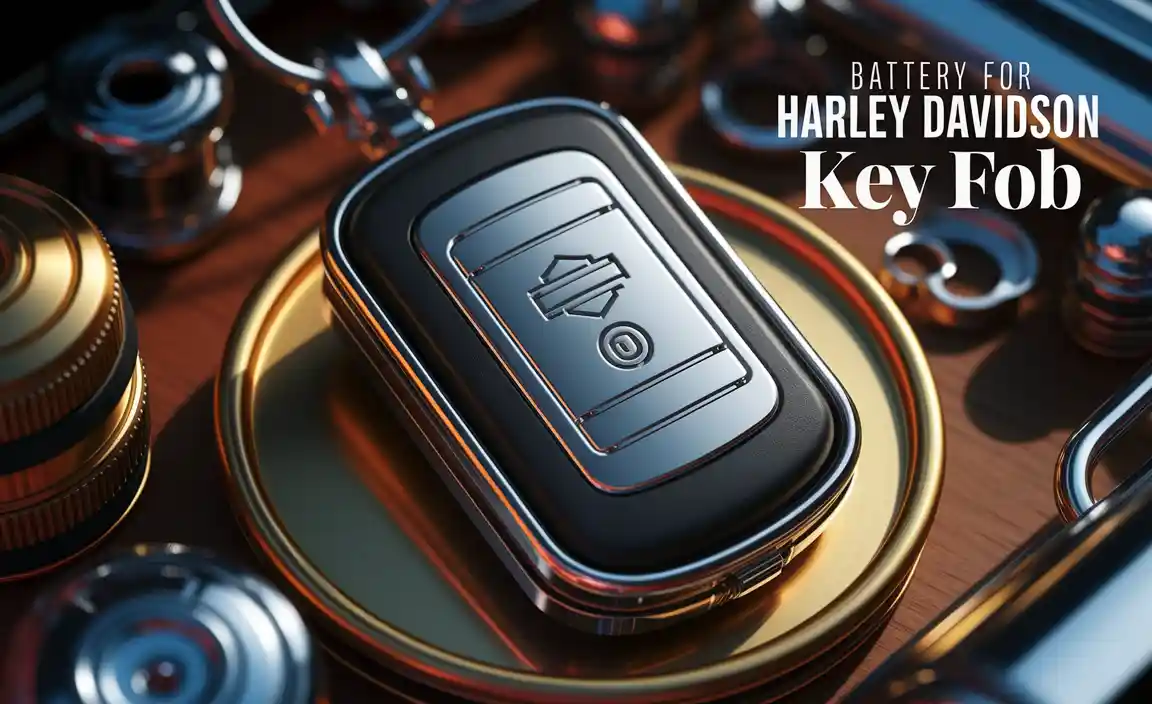Have you ever been stuck in the middle of a project, only to find your tools out of power? It’s frustrating, right? Imagine using your favorite Ryobi tool, only to realize you need new batteries. Knowing the right batteries for Ryobi tools can make or break your work.
Did you know that some Ryobi batteries can last for years if you treat them well? That’s right! With proper care, you can keep your tools running smoothly. This is important because no one wants to pause their DIY fun for a flat battery.
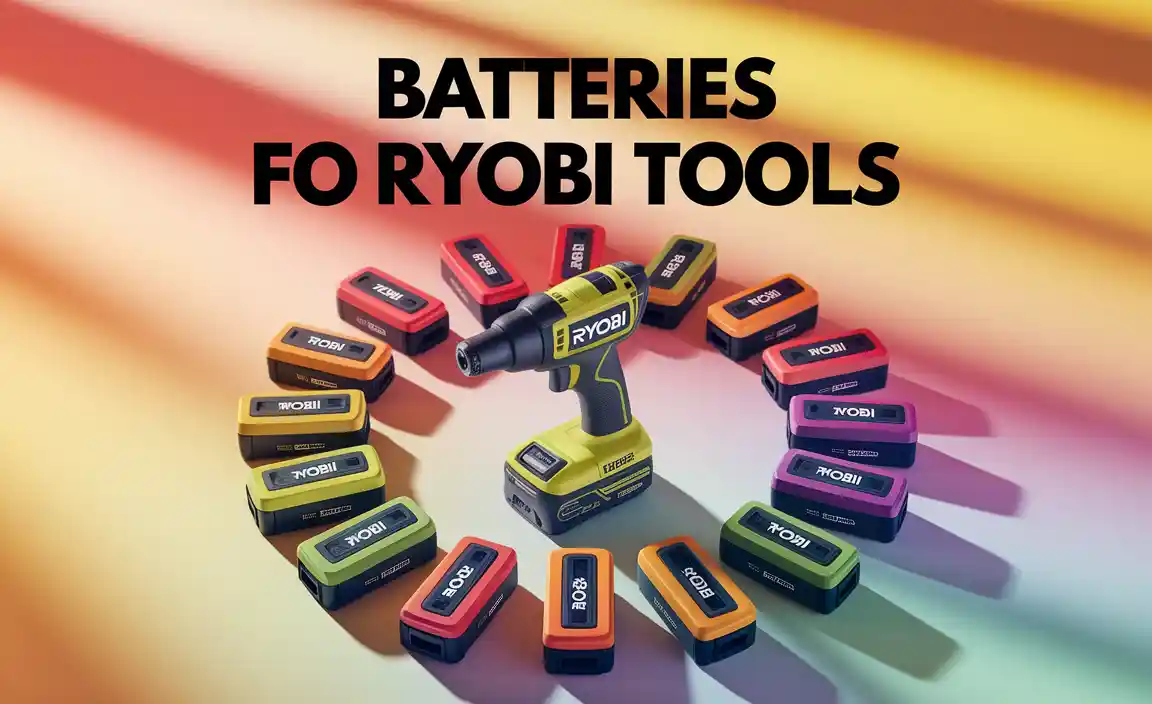
How do you choose the best batteries for your Ryobi tools? Are there options available that suit your needs? In this article, we will explore essential tips and information to help you power up your Ryobi tools with the right batteries. Let’s dive in and discover what you need to know!
Essential Batteries For Ryobi Tools: Power Your Projects!
Finding the right batteries for Ryobi tools can make your projects easier. Did you know Ryobi offers multiple battery options to keep you powered up? These batteries come in different voltages and capacities, giving you choices based on your needs. High-capacity batteries last longer, so you can work without interruptions. Plus, they are compatible with various Ryobi tools. Using the right battery can enhance performance, allowing you to finish tasks faster and more efficiently. Wouldn’t it be great to power through your work?
Types of Batteries for Ryobi Tools
Lithiumion vs. NiCd batteries. Advantages and disadvantages of each type.
When choosing batteries for your Ryobi tools, two types stand out: Lithium-ion and NiCd. Each has its own quirks! Lithium-ion batteries are lightweight and pack a hefty punch, providing long-lasting power. They recharge quickly, so you can tackle projects without waiting around. However, they often come with a higher price tag. On the other hand, NiCd batteries are budget-friendly and pretty durable. But, they can be a bit heavier and generally lose charge faster. Now, who wants a dead battery in the middle of a project? Here’s a quick comparison:
| Battery Type | Advantages | Disadvantages |
|---|---|---|
| Lithium-ion | Lightweight, fast charging, longer run time | More expensive, temperamental in extreme temperatures |
| NiCd | Cost-effective, durable | Heavier, shorter overall battery life |
So, whether you want to save a few bucks or go for faster work, the choice is yours!
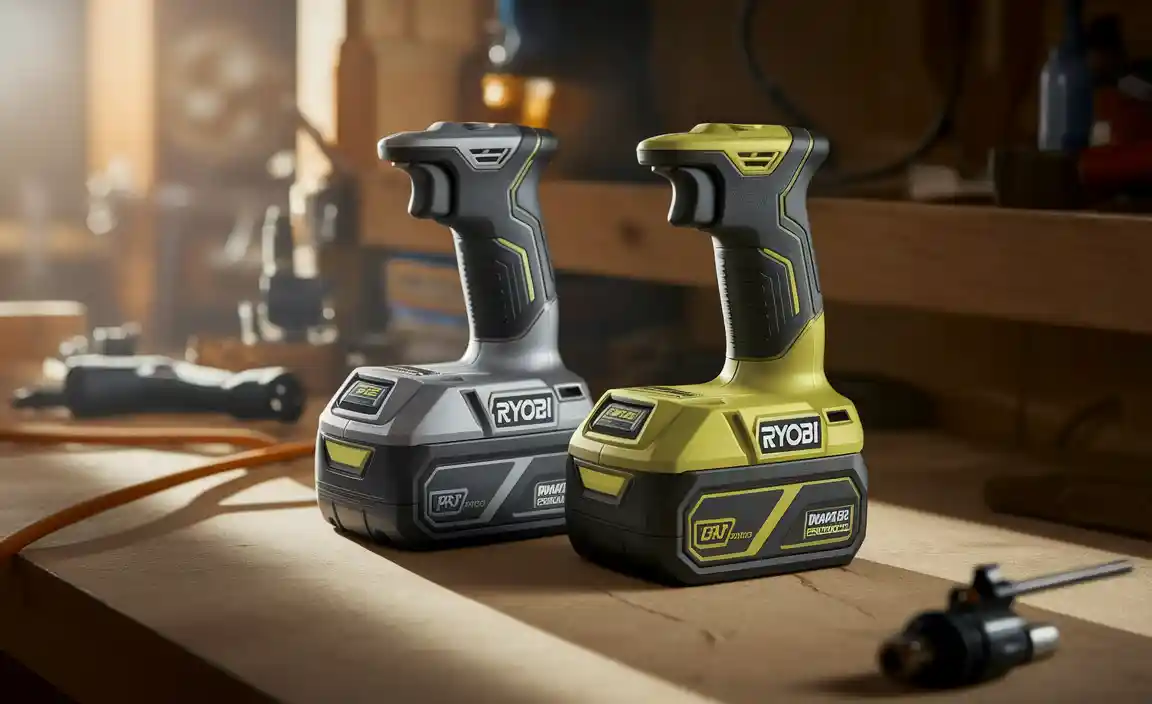
Choosing the Right Battery for Your Ryobi Tool
Factors to consider: voltage, capacity, and tool requirements. How to identify the correct battery specifications.
Picking the right battery for your Ryobi tool can feel like finding a needle in a haystack. First, consider the voltage. Higher voltage gives you more power, but match it with your tool’s needs. Next is capacity. A higher capacity means longer usage time, so you can work without frequent breaks for battery changes. Lastly, check the tool requirements; each model has its own battery type. Always read the manual to avoid the battery blues!
| Specification | Description |
|---|---|
| Voltage | Power output required for the tool. |
| Capacity | Amount of energy stored, affects run time. |
| Tool Requirements | Specific battery type needed for compatibility. |
Maximizing Battery Life for Ryobi Tools
Tips for charging and maintaining batteries. Common mistakes that shorten battery lifespan.
To keep your Ryobi tools running longer, it’s important to care for their batteries. Always charge them fully before use. Avoid letting them drain completely, as this can harm the battery. Store them in a cool place, not too hot or cold. Regularly clean the contacts to ensure a good connection.
- Charge batteries after each use.
- Don’t leave them plugged in for too long.
- Avoid extreme temperatures during storage.
These tips can help your batteries last longer. Remember, small actions make a big difference!
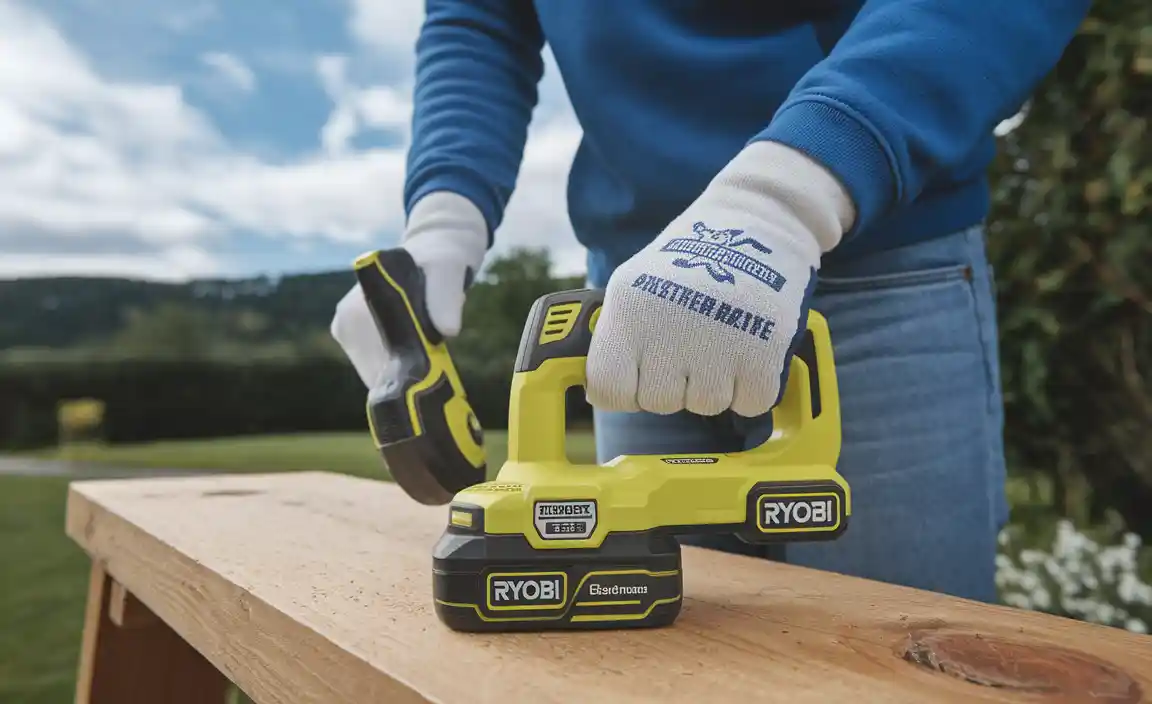
What are common mistakes that shorten battery lifespan?
Common mistakes include overcharging and letting batteries completely drain. Using the wrong charger can also harm them. Always follow the manufacturer’s guidelines for best care.
Aftermarket vs. Original Ryobi Batteries
Pros and cons of using thirdparty batteries. How aftermarket batteries perform compared to originals.
Some people love using aftermarket batteries for Ryobi tools. They can be cheaper than original ones. However, they might not always work as well. Here are some pros and cons:
- Pros:
- Lower cost.
- Wider availability.
- Good performance for light tasks.
- Cons:
- Shorter life span.
- May not fit perfectly.
- Can cause damage if poorly made.
Some aftermarket batteries can perform well, but they are not always the same as original Ryobi batteries. It’s essential to choose wisely.
Do aftermarket batteries last as long as original ones?
In many cases, aftermarket batteries do not last as long as originals. They may work fine for a while but can drain quickly with heavy use.
Battery Replacement Process for Ryobi Tools
Stepbystep guide to replacing batteries. Safety precautions to consider while replacing batteries.
Replacing the battery on your Ryobi tools is a simple task. First, make sure your tool is turned off. Safety first, right? Next, locate the battery release button and press it. This will free the battery. Slide it out gently—no need to wrestle with it!
Grab your new battery and slide it in until you hear a click. Voilà! You’re done! Just remember, always wear safety goggles; battery acid is not a great accessory. Keep kids and pets away while you work, too. It’s all fun and games until someone gets a poke from a battery!
| Step | Action |
|---|---|
| 1 | Turn off the tool |
| 2 | Press the battery release button |
| 3 | Slide the old battery out |
| 4 | Insert the new battery |
Cost Considerations for Ryobi Tool Batteries
Average pricing for original and aftermarket batteries. Budget tips for purchasing the best batteries.
Buying batteries for Ryobi tools can be tricky. The prices vary. Original batteries can cost between $40 to $100. Aftermarket options are often cheaper, ranging from $20 to $60. You can save money by being smart about your purchase.
Here are some tips:
- Check for sales or discounts.
- Consider buying in bulk.
- Read reviews to find reliable brands.
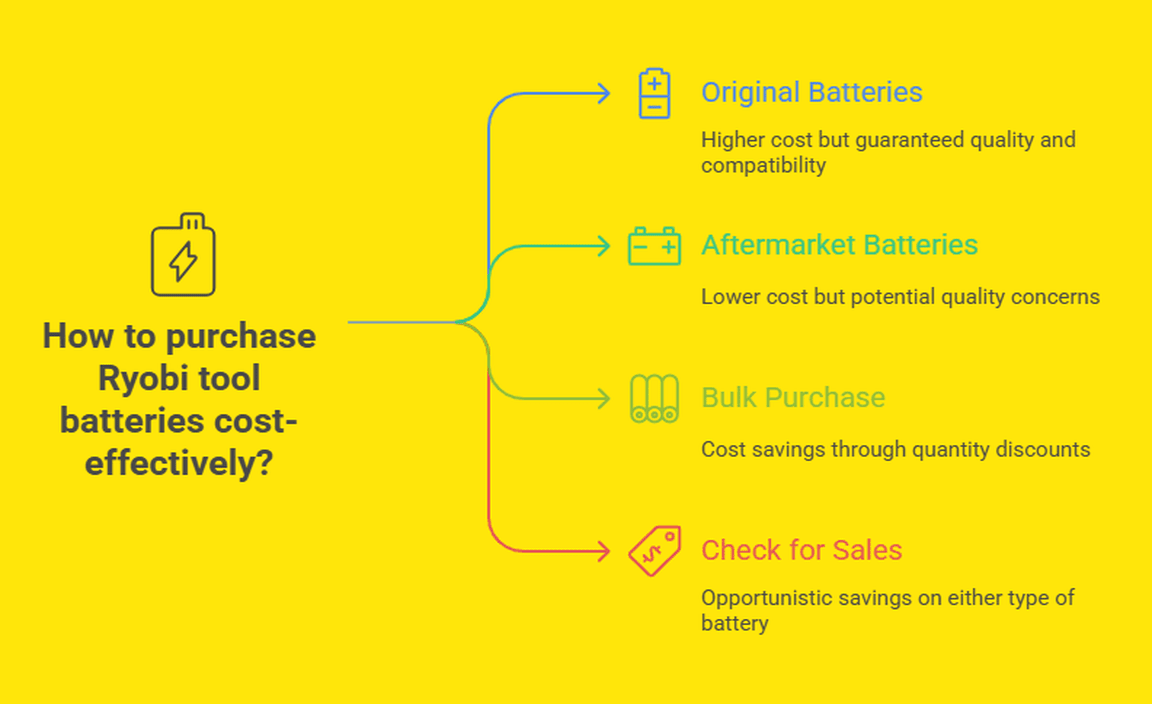
How can I save money on Ryobi tool batteries?
Look for sales, read reviews, and consider bulk buying. These steps can help you find the best deal! Don’t underestimate the power of comparing prices online.
Frequently Asked Questions about Ryobi Tool Batteries
Common questions from users. Expert answers and insights on battery usage and maintenance.
Got questions about your Ryobi tool batteries? You’re not alone! Many users wonder about battery life, maintenance, and troubleshooting. For example, people often ask, “How can I make my battery last longer?” The answer is simple: keep it cool and charge it properly—no hot tubs for your batteries! Another common question is, “Why isn’t my battery holding a charge?” In this case, it might be time for a replacement. Here’s a quick table to help you out!
| Question | Answer |
|---|---|
| How often should I charge my battery? | Charge it after every use! |
| Can I leave my battery plugged in? | It’s best to unplug it after charging. |
With these tips, you can keep your Ryobi batteries zapping like superheroes! Remember, a happy battery makes for happy tools.
Conclusion
In conclusion, choosing the right batteries for Ryobi tools is important for power and performance. Look for genuine Ryobi batteries for better safety and life. Remember, the right voltage and amp hour can boost your tools’ efficiency. We encourage you to explore more about battery options and maintenance to get the best from your Ryobi tools!
FAQs
Sure! Here Are Five Related Questions On The Topic Of Batteries For Ryobi Tools:
Sure! Here are five questions about batteries for Ryobi tools: 1. **How do I charge my Ryobi battery?** You plug the battery into a Ryobi charger. Make sure it fits right! 2. **How long does a Ryobi battery take to charge?** It usually takes 30 minutes to a few hours, depending on the battery size. 3. **How can I tell if my Ryobi battery is charging?** You can check the charger light. If it’s green, it’s charged! 4. **How long does a Ryobi battery last?** It can last from 30 minutes to a few hours, depending on what you’re using it for. 5. **Can I use Ryobi batteries on different tools?** Yes! Most Ryobi batteries work on many Ryobi tools. Just check the size.
Sure! Just let me know what question you want me to answer, and I’ll be happy to help!
What Types Of Batteries Are Compatible With Ryobi Power Tools?
Ryobi power tools usually use lithium-ion batteries. These batteries come in different sizes, like 18 volts or 40 volts. You can find them in most stores that sell Ryobi tools. Just make sure to check the label to get the right one for your tool. Using the correct battery helps your tools work better!
How Do I Determine The Right Battery Capacity For My Ryobi Tool?
To find the right battery capacity for your Ryobi tool, check the tool’s manual or the battery label. Look for the voltage (V) and amp hours (Ah) listed there. Higher numbers mean more power and longer use. If you use the tool a lot, choose a battery with more amp hours. Always make sure the battery fits your specific Ryobi tool model!
What Is The Lifespan Of Ryobi Batteries, And How Can I Extend Their Longevity?
Ryobi batteries usually last about 2 to 5 years. To make them last longer, always charge them fully. Avoid leaving them in very hot or very cold places. You should also use them often and not let them sit for a long time without using them. Treat them kindly, and they’ll serve you well!
Are Ryobi Batteries Interchangeable Between Different Tool Models?
Yes, you can use some Ryobi batteries in different tool models. Ryobi makes many tools that work with the same battery design. If your tools say “One+” on them, the batteries will fit. Always check the battery number to be sure. This makes it easier for you to use your tools!
What Are The Benefits Of Using Ryobi’S Lithium-Ion Batteries Compared To Older Nickel-Cadmium Options?
Ryobi’s lithium-ion batteries are better than older nickel-cadmium batteries in many ways. They last longer, so you don’t have to charge them as often. They also weigh less, making tools easier to use. Plus, lithium-ion batteries don’t lose power as quickly, so your tools work better for longer. Overall, these batteries help you get more done!
Resource:
-
Battery Storage Tips: https://www.consumerreports.org/electronics-computers/rechargeable-batteries/how-to-make-rechargeable-batteries-last-a2071449223/
-
Tool Safety Guidelines: https://www.osha.gov/power-tools
-
Understanding Battery Types: https://www.explainthatstuff.com/batteries.html
-
Recycling Used Batteries: https://www.call2recycle.org/what-can-i-recycle/


